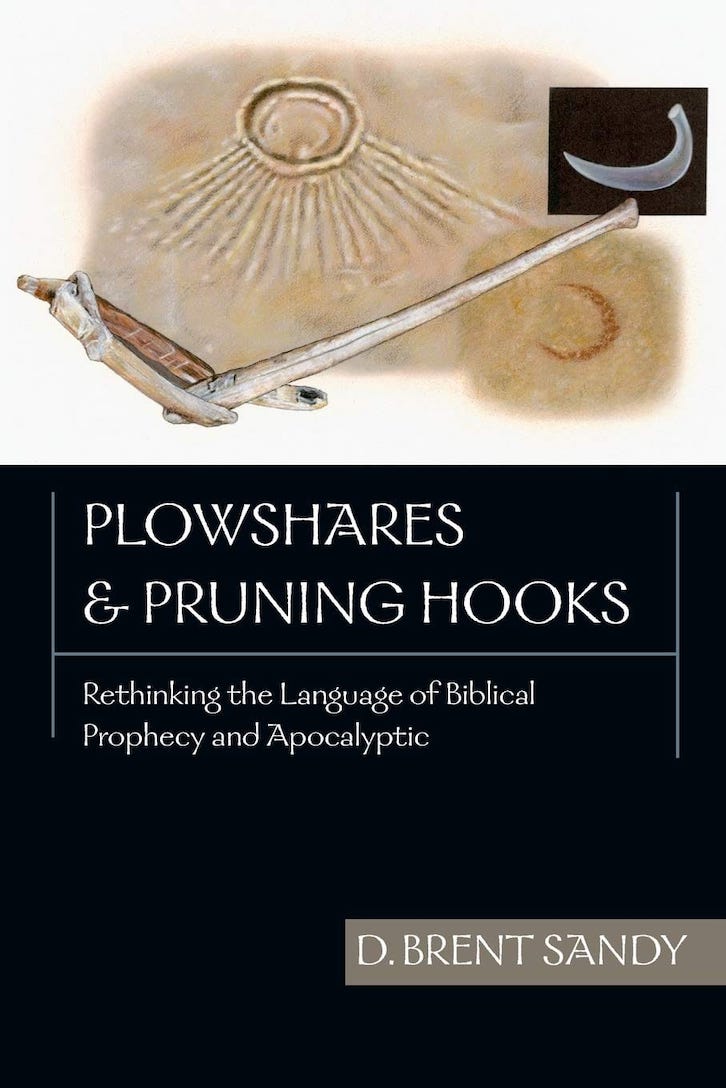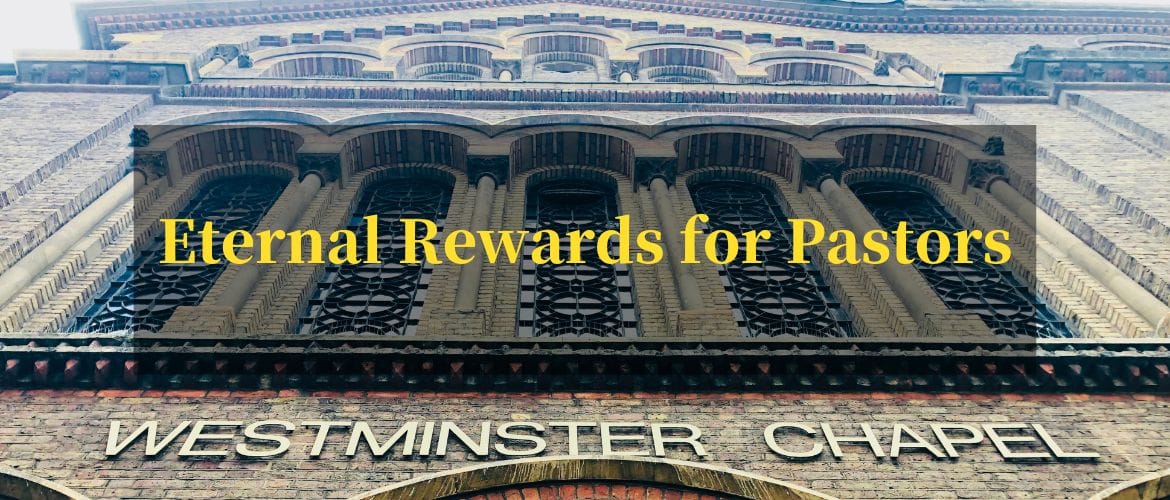
Introduction
This paper discusses the ending of Ruth. I intend … Read the rest

This paper discusses the ending of Ruth. I intend … Read the rest

This paper is a study the Hebrew word, גאל, … Read the rest


Plowshares and Pruning Hooks: Rethinking the Language of Biblical … Read the rest

Preached at Prosper Fellowship Church Youth Service on Dec 4, … Read the rest


(Image) Imagine your graduation day has finally arrived. You … Read the rest

地点:德州丰盛恩友堂
亲爱丰盛恩友堂的弟兄姊妹主内平安。我的名字叫Ken杨全荣。在马来西亚华生长。现在达拉斯神学院进修,在科林郡恩友堂聚会和学习服事主。我感谢主给我有机会与弟兄姊妹分享神的话。也谢谢吴牧师愿意冒风险,给我有机会服事。我是一个极骄傲的人。在年轻的时候只信自己,否认神的存在。但主没有放弃我,祂不断地寻找我,二十多年前把我带到美国,在这里听见福音,蒙恩得救。信主之后,我就开始参与教会的服事。在服事过程中,有时会遇见难处。在跟随主的道路里,不但在教会里有难处,在人生里,也遇见难处。有些难处使我觉得很非常软弱,有些难处大到我几乎没有能力跟谁主和服事主。
你呢?我相信,你跟随主也曾经遇见许多的艰难。可能你现在就正在经历一个难处。你的难处可能是你所爱的亲人离开世界了,你活在悲伤里,没有能力向前走。你的难处可能是要与疾病争战,你的身体有软弱,你没有能力向前走。你可能是因为在教会里服侍遇见难处,和同工不合,或者没有被教会重视,你觉得对教会灰心,你觉得灵里软弱,没有能力向前走。你可能面对经济的压力,一方面你要养家,一方面你要为孩子预备大学的费用,一方面你要为自己的退休打算,你心里疲惫,没有能力向前走。你可能正在与罪争战,有一个罪你一直不能胜过,你觉得自己很软弱,没有能力胜过这个罪。在跟随主的道路上,当我们有软弱的的时候,如何能够从新得力呢?
我今天要与弟兄姊妹分享的题目是认识天父的心意。信息的主要思想是认识天父的心意能够帮助你从软弱中重新得力。认识天父的心意能够帮助你从软弱中重新得力。我们今天的经文是以弗所书一15-23。以弗所书一15-23是一个祷告。使徒保罗在以弗所书里有两个祷告,这是第一个祷告。从以弗所书一15-23里,我们学习认识天父的心意的三件事。
我们开始前先有一个祷告。慈爱的天父,谢谢你爱我们,把主耶稣赐给我们,使我们成为你的儿女。我们求你安静我们的心,让我们来到你的施恩宝座前,聆听你的话语。我们在跟随主的路上遇见许多的难处,许多的压力,许多的失望,许多的无助,我们需要你的话语来鼓励我们。求你将把那赐人智慧和启示的灵赏给我们,使我们真知道你的心意。好让我们在软弱中能够重新得力跟随主耶稣。奉耶稣基督得胜的名祷告,阿门。

In Feb 1885, seven young men in their twenties, … Read the rest

许多基督徒都盼望主日的来临,因为可以去教会聚会敬拜主,服事主,能有弟兄姊妹见面,有喜乐,有满足。但许多弟兄姊妹离开教会时,就把主耶稣留在教会里,因为周一要上班,觉得主和自己的工作好像没有什么关系。你可能不好意思让同事在公司里看见有主耶稣与你同在。你可能害怕主耶稣看见你在公司里和在教会里是两个人。
基督徒每周聚会才几个小时,但却有四十多个小时在工作。许多基督徒很难把信仰和工作连在一起,觉得在教会侍奉是服事主,平常上班是服事法老,结果活的很辛苦。你可能在教会和弟兄姊妹一起的时候很属灵,但是在工作的时候却效法世界,变城了另一个的人,过着双面人的生活。有许多基督徒不认识圣经的工作观,因此在上班时把主放在一边。你可能觉得自己工作很忙,没有时间服事主,等以后退休了才服事主。但人生有几十年都在工作,难道你的工作就与主无关系吗?究竟基督徒应该如何看工作?
我今天要与弟兄姊妹分享的主题是基督是你生命里每一个部分的主,包括你工作,所以你应该邀请主耶稣与你一同上班。我再说一次,基督是你生命里每一个部分的主,包括你工作,所以你应该邀请主耶稣与你一同上班,作你工作的主。
今天的经文是以弗所书六章五到九节。我读给大家听:
“你们作仆人的,要惧怕战兢,用诚实的心听从你们肉身的主人,好像听从基督一般。不要只在眼前事奉,像是讨人喜欢的,要像基督的仆人,从心里遵行 神的旨意。甘心事奉,好像服事主,不像服事人。因为晓得各人所行的善事,不论是为奴的,是自主的,都必按所行的得主的赏赐。你们作主人的,待仆人也是一理,不要威吓他们。因为知道,他们和你们同有一位主在天上;他并不偏待人。”
这段经文告诉我们基督徒为何应该邀请主耶稣与我们一同上班的三个原因。第一个原因是因为我们是基督的仆人。第二个原因是因为我们会得主的赏赐。第三个原因是因为我们不想被主管教。
首先我们很快的回顾以弗所书的架构。这本书清楚的分成两半。前一半是第一到第三章,是讲到基督徒在基督里蒙恩的祝福。一章三节说到天父在基督里曾赐给我们天上各样属灵的福气,二章九节说到我们得救是本乎恩,也因着信;这并不是出于自己,乃是神所赐的;也不是出于行为,免得有人直夸。后一半段是第四章到第六章,是说基督徒应该行事为人当与蒙召的恩相称,请看四章一节。这段说到如何在教会,个人生活,社会,婚姻,和在家庭里行事为人与蒙召的恩相称。到了第六章五节到九节,保罗教导以弗所的弟兄姊妹,信了主的人应该如何的看仆人和主人的关系。
保罗写以弗所书的年代,是主后62年左右。那时是罗马帝国掌权。罗马有奴隶制度,社会里有30%的人是奴隶。奴隶是属于主人的产物,主人对奴隶有完全的主权。家庭和社会里有许多的工作都是由奴隶来作。有作厨师的,作保姆的,作建筑的,作农夫的,作牧羊的,作管家的,作搬运的,和作各种劳力活的。那时许多奴隶信了主,也有许多有奴隶的人信了主。所以保罗要告诉他们在他们新的身份里他们应该如何生活。虽然是写给两千年罗马奴隶制度的教导,但是原则却同样可以应用在21世纪基督徒的工作关系里。… Read the rest

TURN OUR WORRIES TO PRAISE BECAUSE GOD NEVER LOSES WHAT … Read the rest

地点:科林郡恩友堂
时间:2022年4月15日
主耶稣在十字架上说的第六句话是“成了“。只有使徒约翰记载这句话,记载在约19:30。那时,主耶稣已经被钉在十字架上六个小时。其他三本福音书记载,从中午十二点到下午三点,日头和全地都变黑了。好像表示这个世界为它的创造者在十字架上受苦而悲哀!
在主断气前的几秒钟,当主耶稣尝了一口醋后之后,就说了这一句话,“成了!”。主说这话是用什么的口气呢?其他三本福音书记载,主断气前在大声的喊叫。而约翰记载,这喊叫就是,“成了”!这不是失败的呻吟,而是得胜的宣告!
“成了”是什么意思呢?是指什么成了呢?这句话,其实在约翰福音里出现两次,这是第二次。第一次是上两节,第28节。使徒约翰记载:“耶稣知道各样的事都成了,为要使经上的话应验”。“各样”也可以翻译成 “所有”。所有旧约的律法,诗篇和先知所预言的事都成了!所有天父所差派主耶稣基督道成肉身的工作,主耶稣都完成。
整个以色列人的历史,整本的旧约圣经,就是说到人的罪恶,和神的救赎计划。主不但知道神的救赎计划,而且主耶稣道成肉身的目的,就是要执行这救赎计划。主被钉十字架,不是一个意外,而是神救赎人的方法!主被钉十字架,不是显出祂的软弱,而是显出主在掌权!
成了在希腊原文只有一个字,tetelestai!主耶稣用一个字来表示祂成就了神整个的救赎计划!这个字是完成时态,是perfect tense,表示已经完成了,而且继续有功效!主耶稣一次被钉十字架完成救赎,却永远有功效。Tetelestai!
女人的后裔已经伤了撒旦的头,成了!(创3:15)神律法公义和圣洁的要求已经满足了,成了!主耶稣已经得胜了黑暗的权势,成了!逾越节羔羊已经被杀献祭了(林前5:7),主耶稣的宝血已经流出了,成了!我们所犯的罪的工价,全还清了,成了!进入至圣所的幔子已经从上到下裂开了,好让信祂的人可以坦然无惧的进入施恩的宝座前,成了!(路23:45)这么大的救恩,已经作成了,成了!… Read the rest